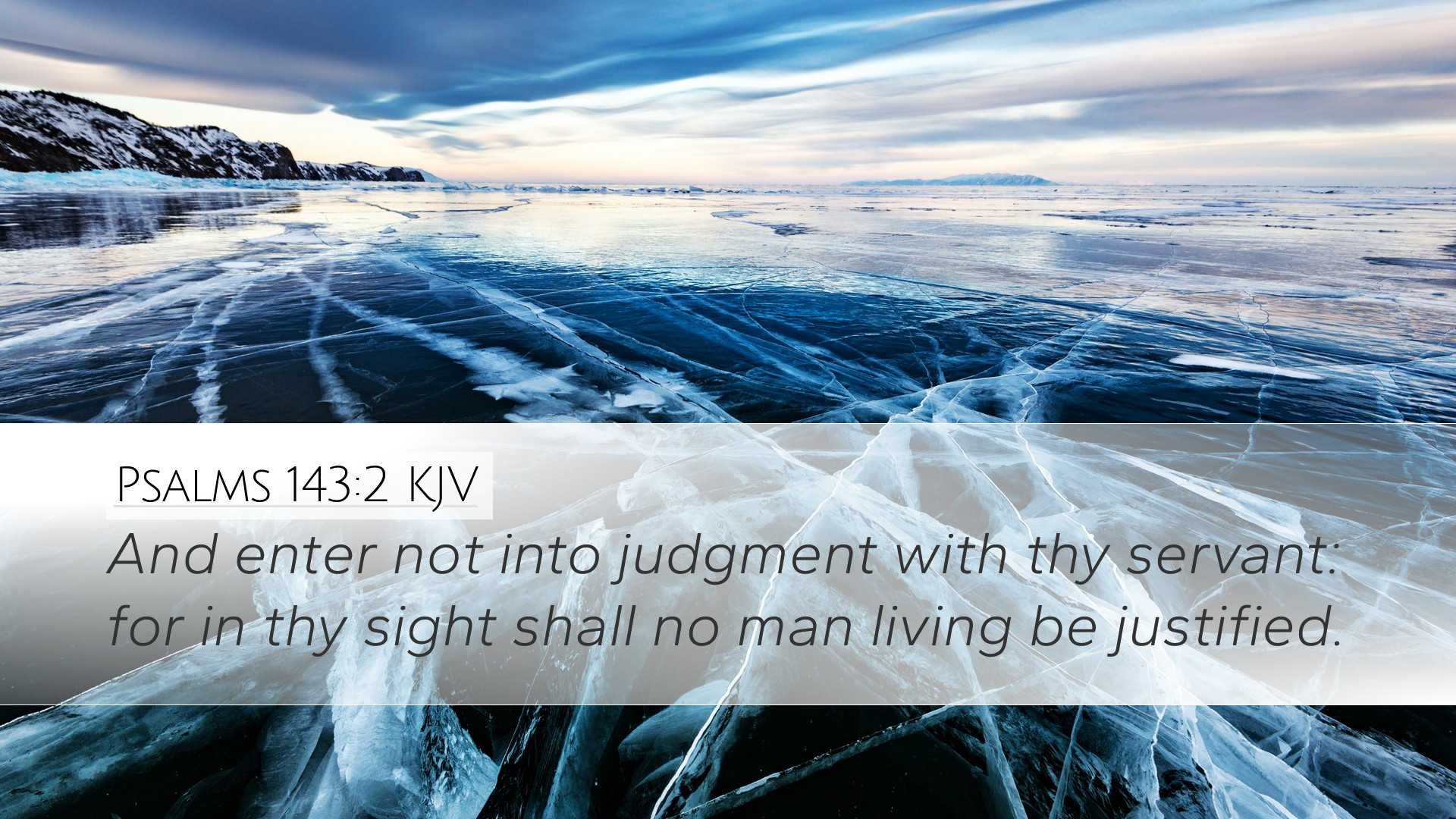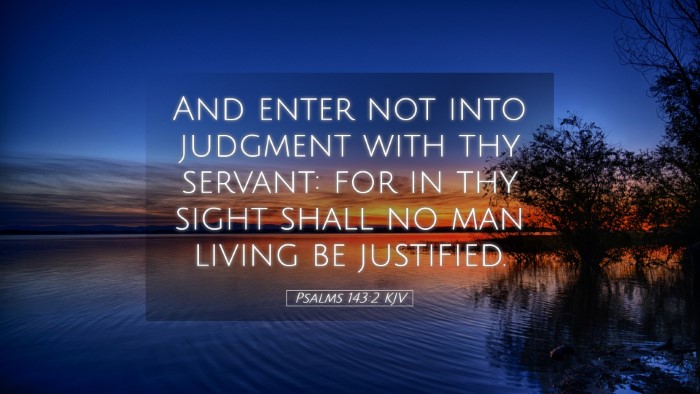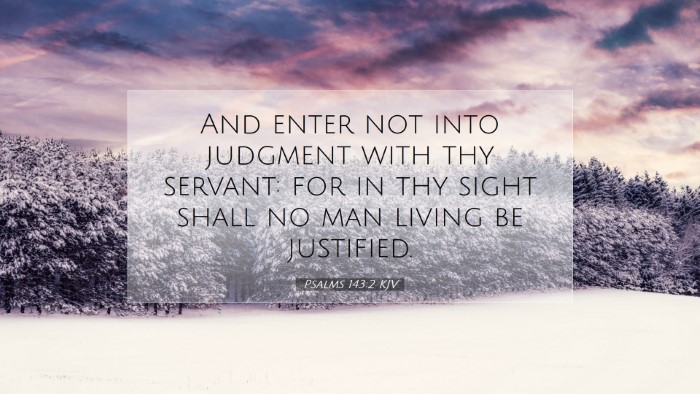Commentary on Psalms 143:2
Psalms 143:2 states:
"And enter not into judgment with thy servant: for in thy sight shall no man living be justified."
This verse highlights the themes of divine judgment and human vulnerability before God. The psalmist, possibly David, expresses a deep sense of humility and dependence on God’s mercy. The insights from various public domain commentaries shed light on the theological implications and pastoral applications of this profound scripture.
Overview of the Verse
The essence of Psalms 143:2 can be summarized in the tension between God's righteousness and human imperfection. The psalmist is aware of the sinful nature of humanity, acknowledging that no one can stand justified before the righteous judgment of God.
Matthew Henry's Commentary
Matthew Henry emphasizes the plea for divine grace as the heart of this verse. He notes:
- Recognition of Human Limitations: The psalmist acknowledges, as Henry points out, that human beings are inherently flawed, underscoring the idea that no man living can claim righteousness based on their merit.
- The Nature of God’s Judgment: Henry describes God's judgment as perfect and unflawed, hence the psalmist's request not to enter into judgment. It reflects an understanding of the seriousness with which one must approach the God of justice.
- Dependence on Mercy: The call for mercy is central to Henry's interpretation. The psalmist is aware of his own faults and seeks God’s favor, highlighting the necessity of grace for salvation.
Albert Barnes' Perspective
Albert Barnes provides a systematic analysis of this verse, shedding light on its implications:
- Judgment and Servitude: Barnes notes that "thy servant" indicates a recognition of one's position before God. It denotes submission and signifies that the psalmist is beckoning God to act based on His covenant faithfulness.
- Justification and Accountability: He emphasizes that the call for God not to enter into judgment is a statement of human incapacity to justify oneself before divine scrutiny. Barnes asserts that this expresses the universal need for redemption.
- The Holiness of God: Barnes reflects on the holiness of God, concluding that in the divine presence, all human righteousness is inadequate. The believer should thus rely solely on God's grace for salvation.
Adam Clarke's Insights
Adam Clarke provides a detailed examination of the linguistic elements and theological ramifications:
- Linguistic Analysis: Clarke dives deep into the original Hebrew, addressing the specific connotations of the terms used in the verse. He highlights that “enter not into judgment” signifies a plea for God to withhold His scrutiny.
- Nature of Humanity: Clarke emphasizes the idea that humans are imperfect and thus incapable of defending their actions before a holy God. This theme echoes throughout scripture as seen in Romans 3:23.
- Hope in Divine Mercy: Clarke reiterates the importance of a contrite heart before God, suggesting that even in one’s plea for mercy, there is an underlying hope rooted in God’s unfailing love and compassion.
Theological Implications
The theological insights from the commentaries converge to deliver a profound understanding of repentance, mercy, and the holiness of God.
- The Reality of Sin: All commentaries acknowledge that sin separates humanity from God. This verse serves as a reminder of the need for humility and contrition.
- The Nature of Divine Justice: God's justice is depicted as absolute and impartial, reinforcing the essential Christian belief in the need for divine mercy.
- Redemptive Hope: Despite the somber reflection on human imperfections, there lies an inherent hope in God's mercy that transcends the judgment, encouraging believers to approach Him with confidence in His compassion.
Pastoral and Practical Applications
The themes derived from Psalms 143:2 carry significant implications for pastoral ministry and personal spiritual growth:
- Encouragement in Prayer: Pastors can encourage congregants to approach God with humility, recognizing their need for mercy, as exemplified by the psalmist.
- Teaching on Justification: This verse provides a rich context for teaching on the doctrine of justification by faith, emphasizing reliance on Christ rather than one’s works.
- Cultivating a Heart of Repentance: This verse serves as a basis for fostering an attitude of repentance, encouraging believers to continually seek God’s forgiveness in light of His holiness.
Conclusion
Psalms 143:2 serves as a poignant reminder of our need for God's grace amidst our shortcomings. The combined insights from Matthew Henry, Albert Barnes, and Adam Clarke illuminate the profound truth that in God's sight, none can stand justified without the grace afforded through faith in Him. This verse powerfully encourages believers to approach God with humility and an assurance in His mercy, fostering a deeper relationship grounded in grace and love.


